Explore the best places
Discover new places in Lisboa
Quinta de Santo António
- heritage
Largo do Ministro, 9
1750-200, Lisboa
18TH-century farmhouse, consisting of a Manor House, support buildings, a garden and an orchard. The garden and the Orchard romantic architectural characteristics.
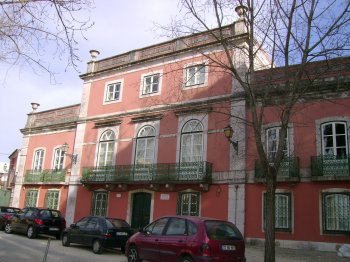
Quinta de São Cristóvão / Residência Inglesa / Casa da Quinta dos Mellos / Vila Maria
- heritage
Largo de São Sebastião, 8
1600-762, Lisboa
Fifth century recreational, to submit a plant irregular rectangle made up of the House, a garden and a chapel. The main façade is sober lines, denoting Mannerist influence.
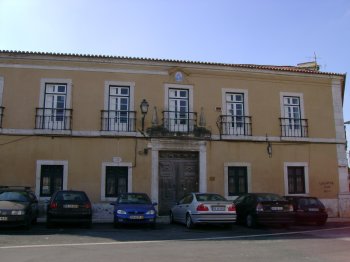
Quinta de São Sebastião / Quinta de São Sebastião da Pedreira / Quinta do Roxo
- heritage
Estrada do Paço do Lumiar, 2-4
1600-545, Lisboa
Recreational farm that was being expanded over the years, having initially more sober buildings, being later enriched and modernized. For this reason, coexist various styles: Renaissance, Baroque, neoclassical and romantic.
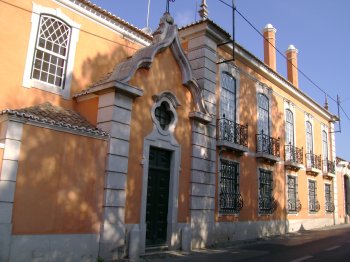
Quinta do Conde do Paço / Palácio dos Condes do Paço / Real Colégio de Portugal
- heritage
Rua Esquerda, 63
1600-435, Lisboa
Neoclassical-revival estate consists of a main body of neoclassical inspiration, regular rectangular plan with two and three floors, divided by a frieze in stonework. Is protected by a wall all the way around. The main façade has the stone of arms of the owner, marked on the main floor.
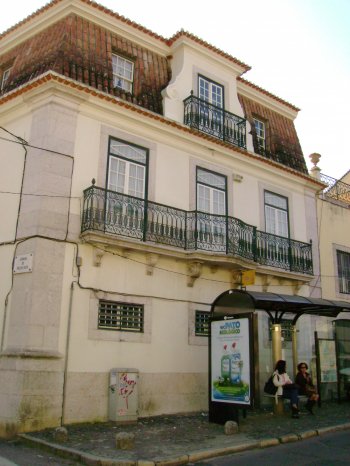
Palácio Burnay
- heritage
Rua da Junqueira, 86
1300-344, Lisboa
Built in the beginning of seven hundred, it was significantly altered during the XIX century. The greenhouse deserve a closer look, in a neoclassical mixture with the iron architecture and the dome, following the entrance wall, decorated with "tromp-l'oeil", involving the staircase divided in two circular branches.
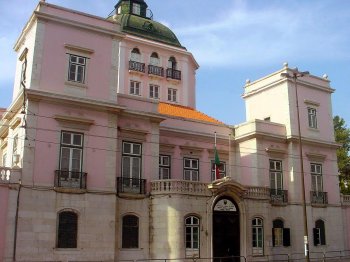
Conjunto do Palácio das Necessidades
- heritage
Largo do Rilvas - Largo das Necessidades, 58
1350-276, Lisboa
Located at the Alcântara centre, it was one of the rare constructions that stood the earthquake of 1755. The palace has beautiful gardens, where you may enjoy a vast collection of exotic plants. Right in front of this building there is a fountain. It was a royal residence until the beginning of the XX century (almost all the Portuguese kings lived here), when the monarchy was abolished in Portugal. In 1910, the palace saw its precious art collections divided by several museums.
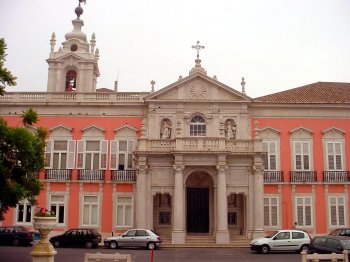
Igreja de Nossa Senhora da Vitória
- heritage
Rua da Vitória
1100-619, Lisboa
Church with single nave longitudinal plant. The front elevation is organized in a single body. The fronton is exceeded with a cross.

Igreja de Nossa Senhora das Dores
- heritage
Rua do Embaixador
1300, Lisboa
Church founded in 1787 by the Brotherwood and Charity of Nossa Senhora das Dores. In 1867 it suffers repair and improvement works. It has longitudinal plant with a single nave and a main chapel.

Ermida de Nossa Senhora dos Milagres
- heritage
Rua da Estrela
1200-669, Lisboa
This church, built in 1753, presents a longitudinal drawing, a single nave and main chapel. In 1783 it suffered repair works. Already in 1940 it was the object of repairs and changes of the lateral altars.

Ermida de Nossa Senhora da Oliveira
- heritage
Rua de São Julião
1100-527, Lisboa
Chapel that occupies the ground floor of a three storeys building from the Marquês de Pombal period. On the façade there’s a portal cased with ornamental ashlar masonry and tympanum, formed by three doors. Inside, the single nave is covered with white and blue glazed tiles representing the life of the Holly Mary.
